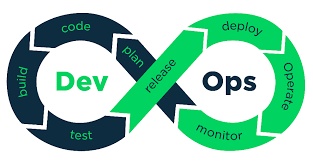Introduction
DevOps, often seen as a marriage between development (Dev) and operations (Ops), is primarily associated with technical aspects such as automation, scripting, and coding. However, one common misconception is that you must be a proficient coder to embark on a DevOps journey. If you're interested in pursuing a career in DevOps without extensive coding experience, you can kickstart your journey by enrolling in a comprehensive DevOps Course that covers the essential principles, practices, and tools, making it accessible to individuals with various skill sets and backgrounds. In this article, we will debunk this myth and explore the avenues for starting a career in DevOps without extensive coding skills.
Understanding DevOps Beyond Coding
DevOps is not solely about writing code; it's about fostering collaboration, automation, and continuous improvement across the software development and IT operations spectrum. While coding is certainly valuable, several non-technical roles and responsibilities play crucial roles in a DevOps environment.
1. Culture and Collaboration
The cultural aspect of DevOps is foundational. It involves breaking down silos and promoting effective communication and collaboration between development and operations teams. Regardless of your coding abilities, you can contribute by being a DevOps evangelist, facilitating meetings, and fostering a culture of teamwork.
2. Project Management and Coordination
DevOps requires efficient project management and coordination. Project managers, product owners, and Scrum Masters play vital roles in ensuring that development and operations teams work seamlessly together. These roles do not require coding expertise but demand excellent organizational and leadership skills.
3. Quality Assurance (QA)
QA engineers and testers are essential in ensuring the quality and reliability of software releases. While some automation scripting may be involved, a strong focus on testing strategies and methodologies is equally important. Automated testing tools can assist, reducing the need for extensive coding.
4. Security
DevSecOps, an extension of DevOps, emphasizes security throughout the software development lifecycle. Security professionals can actively participate in DevOps by implementing security policies, conducting risk assessments, and ensuring compliance without necessarily writing code.
5. Release Management
Release managers oversee the deployment and delivery of software products. Their role is to ensure that releases are planned, coordinated, and executed efficiently. While some scripting may be useful, it's not the primary requirement for this role.
Leveraging Automation Tools
DevOps heavily relies on automation, but you don't have to be a coding expert to use automation tools effectively. Many user-friendly DevOps tools provide graphical interfaces and pre-built templates, making it easier for non-technical professionals to automate tasks like building, testing, and deployment.
Conclusion
In conclusion, DevOps is not exclusive to coding experts. It's a holistic approach to software development and operations that values collaboration, automation, and efficiency. Non-technical roles in DevOps play critical parts in achieving these objectives, and many of these roles do not require extensive coding skills. By focusing on the cultural, organizational, and managerial aspects of DevOps, individuals with diverse skill sets can contribute to and excel in the DevOps ecosystem. So, yes, you can start your DevOps journey without being a coding guru, as long as you bring enthusiasm, adaptability, and a commitment to improving software delivery processes.


No comments yet